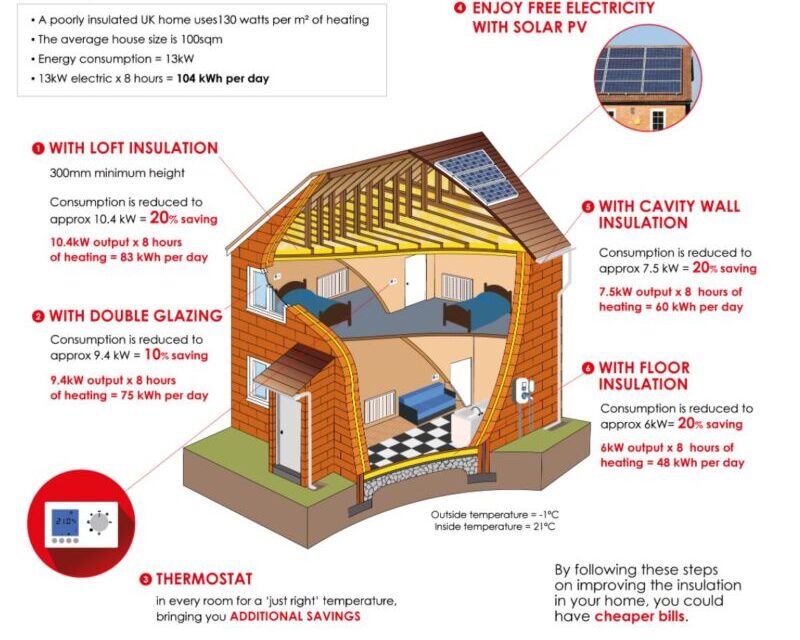
Optimize Comfort with Energy-Efficient Insulation
As homeowners increasingly prioritize energy efficiency, the role of insulation becomes paramount in creating a comfortable and sustainable living environment. Explore the benefits and considerations of energy-efficient insulation for your home.
Understanding the Importance of Insulation
Insulation acts as a thermal barrier, regulating indoor temperatures by preventing heat transfer between the interior and exterior of your home. Proper insulation is crucial for maintaining a comfortable climate year-round and reducing reliance on heating and cooling systems.
Benefits of Energy-Efficient Insulation
Energy-efficient insulation provides a range of benefits, starting with improved energy conservation. By minimizing heat loss during colder months and heat gain during warmer months, you not only enhance indoor comfort but also reduce energy consumption, leading to lower utility bills.
Enhancing Indoor Comfort
Optimal indoor comfort is a key outcome of energy-efficient insulation. By preventing drafts, maintaining consistent temperatures, and minimizing humidity fluctuations, insulation creates a more pleasant living environment. Enjoy cozy winters and cool summers with well-insulated spaces.
Cost Savings and Return on Investment
Investing in energy-efficient insulation is a wise financial decision. While there is an initial upfront cost, the long-term savings on energy bills make it a sound investment. Over time, the return on investment becomes evident as your home’s energy efficiency improves.
Types of Energy-Efficient Insulation
Explore various insulation materials suited to different areas of your home. Common options include fiberglass, cellulose, spray foam, and reflective foil. Each material has specific attributes, and choosing the right one depends on factors such as climate, budget, and application.
Proper Installation for Maximum Efficiency
The effectiveness of insulation heavily relies on proper installation. Ensure that insulation is installed uniformly and without gaps or compression. Professional installation is recommended to achieve the intended thermal performance and maximize energy efficiency.
Considerations for Existing Homes
If you own an existing home, upgrading insulation is a feasible and impactful way to improve energy efficiency. Assess the current insulation status, identify areas that need improvement, and consult with professionals to determine the most suitable upgrades for your specific needs.
Environmental Impact and Sustainability
Energy-efficient insulation not only benefits homeowners but also contributes to environmental sustainability. By reducing energy consumption, you minimize your carbon footprint and play a role in promoting a more eco-friendly and responsible approach to home living.
Government Incentives and Rebates
Many governments offer incentives and rebates to encourage homeowners to invest in energy-efficient upgrades, including insulation. Explore available programs in your area to take advantage of financial incentives that can offset the initial costs of insulation improvements.
Energy-Efficient Insulation: A Link to Comfort and Savings
To explore comprehensive resources and expert guidance on implementing energy-efficient insulation in your home, visit Energy-Efficient Insulation. Empower yourself with knowledge and take the first step towards creating a comfortable, sustainable, and cost-effective living space.
In conclusion, energy-efficient insulation is a cornerstone of creating a comfortable and sustainable home. From reducing utility bills to minimizing environmental impact, the benefits extend far beyond immediate comfort. Invest in energy-efficient insulation to optimize your living space for comfort and savings. visit https://excentra.my.id/
https://goldengamblearena.my.id/
https://healthelevate.my.id/
https://healthmavenmind.my.id/
